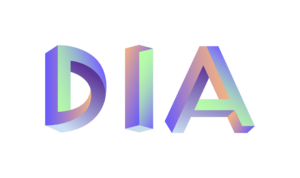Difference between revisions of "DIA"
(Added content to the page. Initial Draft) |
m (Category) |
||
| (2 intermediate revisions by the same user not shown) | |||
| Line 1: | Line 1: | ||
==DIA ( | {{DISPLAYTITLE:DIA (Decentralised Information Asset)}} | ||
==DIA (Decentralised Information Asset)== | |||
[[File:DIA Full logo - Colour.png|thumb|DIA (Decentralised Information Asset)]] | [[File:DIA Full logo - Colour.png|thumb|DIA (Decentralised Information Asset)]] | ||
DIA (Decentralized Information Asset) is an open-source, financial information platform that leverages crypto-economic incentives to source and validate data and oracles for decentralized finance. The DIA platform provides the infrastructure for market actors to supply, validate, use and share financial data. DIA's data sources and methodologies are transparent and publicly accessible for everyone. | DIA (Decentralized Information Asset) is an open-source, financial information platform that leverages crypto-economic incentives to source and validate data and oracles for decentralized finance. The DIA platform provides the infrastructure for market actors to supply, validate, use and share financial data. DIA's data sources and methodologies are transparent and publicly accessible for everyone. | ||
| Line 15: | Line 17: | ||
All data points are publicly accessible and delivered through a rest API or oracles to major blockchain ledgers including Ethereum, Binance Smart Chain, Polkadot, Polygon, Solana, Moonbeam, Fantom, Arbitrum, Celo and Avalanche, to name a few.<ref>https://blockonomi.com/dias-cross-chain-interoperability-expanded-to-the-layer1-network-solana/</ref> | All data points are publicly accessible and delivered through a rest API or oracles to major blockchain ledgers including Ethereum, Binance Smart Chain, Polkadot, Polygon, Solana, Moonbeam, Fantom, Arbitrum, Celo and Avalanche, to name a few.<ref>https://blockonomi.com/dias-cross-chain-interoperability-expanded-to-the-layer1-network-solana/</ref> | ||
==References== | |||
<references /> | |||
{{DEFAULTSORT:DIA (Decentralised Information Asset)}} | |||
[[Category:Oracles]] | |||
[[Category:Protocols]] | |||
[[Category:DAO]] | |||
Latest revision as of 16:28, 15 May 2022
DIA (Decentralised Information Asset)
DIA (Decentralized Information Asset) is an open-source, financial information platform that leverages crypto-economic incentives to source and validate data and oracles for decentralized finance. The DIA platform provides the infrastructure for market actors to supply, validate, use and share financial data. DIA's data sources and methodologies are transparent and publicly accessible for everyone.
History
In 2018, DIA was founded as a non-profit association based in Zug, Switzerland. DIA’s mission is to democratize the access to financial data. In August 2020, DIA raised 15$ million through the sale of its governance token.[1]
The Oracle Problem
Blockchains are networks that automatically perform transactions, also known as smart contracts, when certain conditions are met. But Blockchains are closed networks, natively only accessing internal data of the network to execute these smart contracts. Blockchain oracles are the third-party services that provide smart contracts with information from the outside world. If a blockchain oracle only relies on a single and centralized source of truth, it can lead to altering the smart contract, sacrificing the decentralized and trustless ness nature of Blockchain Networks and smart contracts.
DIA is working towards solving the oracle problem by crowd-sourcing and validating data scraped from multiple sources.[2]
Technology
The DIA platform claims to be designed to deliver financial data points with transparent methodologies by leveraging the community to source and validate data points. The platform collects pricing data at individual trade-level directly from multiple exchanges as well as on-chain data.[3]
All data points are publicly accessible and delivered through a rest API or oracles to major blockchain ledgers including Ethereum, Binance Smart Chain, Polkadot, Polygon, Solana, Moonbeam, Fantom, Arbitrum, Celo and Avalanche, to name a few.[4]
References
- ↑ https://www.coindesk.com/markets/2020/08/21/open-source-defi-data-platform-dia-raises-15m-through-token-sale/
- ↑ https://hackernoon.com/the-importance-of-oracles-in-decentralised-finance-cannot-be-undermined-qp213xi1
- ↑ https://cvj.ch/en/hot-topics/minds/dia-protocol-interview-with-president-michael-weber/
- ↑ https://blockonomi.com/dias-cross-chain-interoperability-expanded-to-the-layer1-network-solana/
